Season steak properly by applying 1 teaspoon of coarse kosher salt per pound 40-60 minutes before cooking, patting dry first, and adding pepper after searing. This simple science-backed method creates the perfect crust while enhancing natural flavors without overpowering the meat.
Whether you're a weeknight griller or weekend barbecue enthusiast, this guide delivers actionable steak seasoning techniques that work. We cut through the noise to give you exactly what you need to know for restaurant-quality results at home—no professional equipment required.
Table of Contents
- The Essential Steak Seasoning Method (Do This First)
- Common Steak Seasoning Mistakes (Even Pros Make These)
- 5 Professional-Level Steak Seasoning Techniques You Can Master in 5 Minutes
- Spice Profiles: Choosing the Right Flavor Adventure
- Thickness Matters: Tailoring Seasoning to Your Steak
- The Science of Seasoning: Why It Works (Yes, There's Chemistry Involved)
- Visual Guide to Seasoning Like a Grill God
- Conclusion: Taste the Meaty Difference
- Frequently Asked Questions
The Essential Steak Seasoning Method (Do This First)
For perfect steak seasoning results every time, follow these three critical steps:
- Dry the surface thoroughly with paper towels (moisture prevents proper browning)
- Apply 1 teaspoon coarse kosher salt per pound of steak, 40-60 minutes before cooking
- Add freshly cracked black pepper only after searing begins to prevent burning
This basic technique leverages the Maillard reaction while allowing salt to penetrate the meat through osmosis. Coarse salt provides better adhesion and controlled dissolution than fine table salt.
Immediate Action Step:
- For a standard 1-1.5 inch steak, salt 45 minutes before cooking and leave at room temperature
- Use Diamond Crystal kosher salt (1 teaspoon weighs 5g) rather than Morton's (more dense)
- Never season with salt within 20 minutes of cooking - this draws out moisture without time to reabsorb
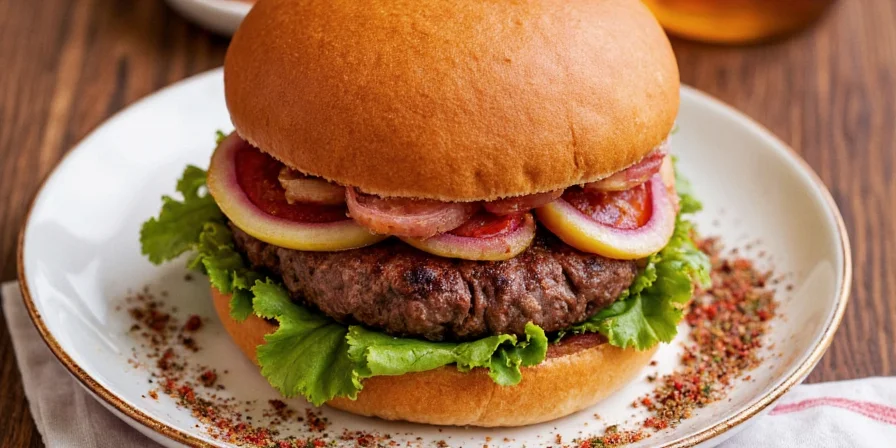
Common Steak Seasoning Mistakes (Even Pros Make These)
You might be doing everything right except... well, everything. Let's uncover those tiny missteps that ruin otherwise amazing steaks:
- Over-seasoning: Less can truly be more when using bold spices like garlic powder or cayenne.
- Not letting it rest: Seasoned meat needs time to absorb flavors—don't rush!
- Cooking too cold: Bring your steak to room temperature before searing—it absorbs spices better and cooks more evenly.
| Mistake | What Happens | Fix It By |
|---|---|---|
| Too much pepper | Burns quickly, tastes bitter | Add after searing begins |
| No oil before spice | Poor crust formation | Brush steak with olive oil first |
| Wet surface | Steam instead of sear | Pat dry before seasoning |
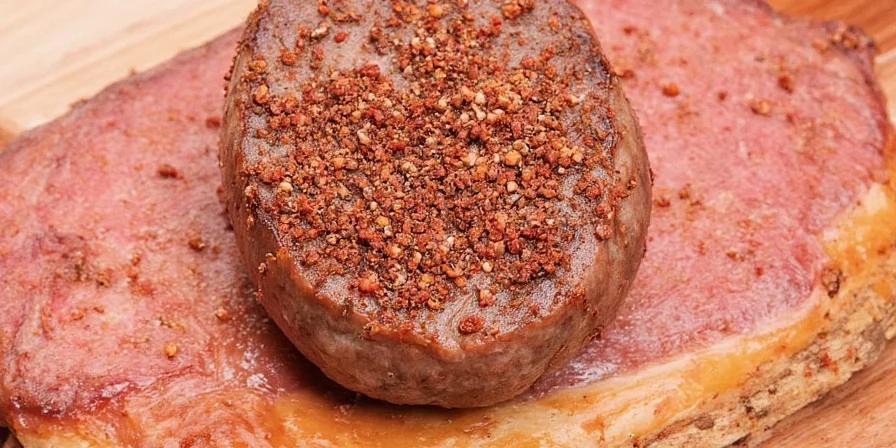
5 Professional-Level Steak Seasoning Techniques You Can Master in 5 Minutes
These are the secret weapons from real pitmasters and celebrity chefs who've made seasoning their superpower:
- The "Three Musketeers" Blend: Equal parts salt, black pepper, and smoked paprika. A trio that never fails.
- Dry Brining: Mix 1 teaspoon salt per pound with 1/4 teaspoon garlic powder and rub into the steak. Refrigerate uncovered overnight for maximum flavor penetration.
- The Herb Butter Finish: Add fresh thyme or rosemary sprigs during the last 2–3 minutes of cooking for aromatic depth.
- Crust Boosters: Use cracked black pepper, mustard seed, or fennel seeds ground slightly for texture contrast.
- The Oil Bridge: Rub your steak with oil before applying dry spices—this helps them stick better and distribute evenly.
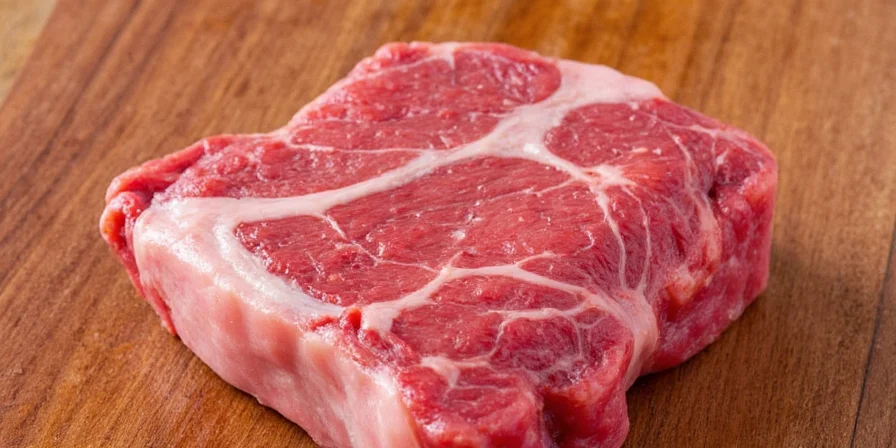
Spice Profiles: Choosing the Right Flavor Adventure
Think of your spice mix as a personality test for your steak. Different profiles create completely different experiences:
| Flavor Profile | Spice Blend Suggestions | Perfect For |
|---|---|---|
| Classic American | 1 tsp salt + 1/2 tsp coarse black pepper + 1/4 tsp garlic powder per pound | Texas-style grilled ribeye |
| Smoky & Bold | 1 tsp smoked paprika + 1/2 tsp cumin + 1/4 tsp chili powder + 1/4 tsp brown sugar per pound | BBQ brisket cuts or chuck steaks |
| Herby Freshness | 1 tsp sea salt + 1/2 tsp finely chopped rosemary + 1/4 tsp thyme + lemon zest per pound | Delicate filet mignon or sirloin |
| Global Fusion | 1/2 tsp Szechuan pepper + 1/4 tsp turmeric + 1/4 tsp coriander + 1/8 tsp ginger per pound | Flat iron or skirt steak |
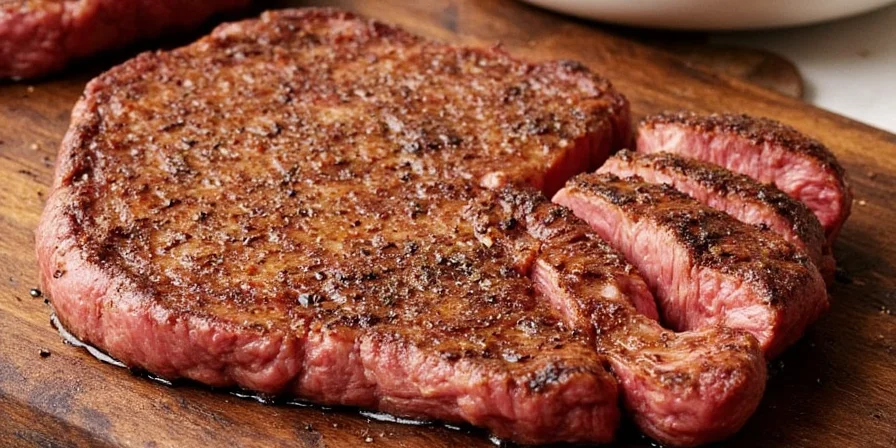
Thickness Matters: Tailoring Seasoning to Your Steak
Not all steaks are created equal—and your seasoning approach should reflect that. Here's how to adjust based on thickness:
- Thin steaks (under 1 inch): Season just 15 minutes before cooking. Longer resting causes excessive moisture loss, leading to steaming instead of searing.
- Standard steaks (1-1.5 inches): Rest for 40-60 minutes after seasoning. This allows flavor penetration without compromising texture.
- Thick-cut steaks (1.5+ inches): Dry brine overnight. Pat dry, apply salt generously, and refrigerate uncovered for 8-24 hours for deep seasoning and ultra-crisp crust.
Pro Tip:
For thick steaks, skip pepper during dry brining—it can burn during extended cooking. Add it in the last 5 minutes.
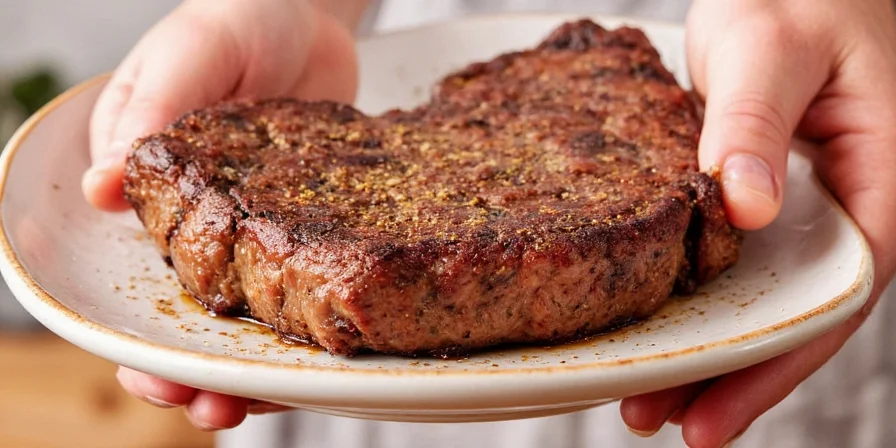
The Science of Seasoning: Why It Works (Yes, There's Chemistry Involved)
Here comes the nerdy part—the science behind why seasoning works so well on steak:
- Maillard Reaction: This chemical reaction between amino acids and reducing sugars gives browned food its desirable flavor. Salting accelerates this process by lowering the pH and increasing surface temperature.
- Osmosis: Salt pulls water out of the meat, dissolves, and then gets reabsorbed—bringing spices along with it. This process takes 40+ minutes for optimal results.
- Volatile Compounds: Spices like garlic, onion, and chili release aromatic compounds when heated—enhancing the sensory experience. Garlic compounds activate at 140°F, while rosemary compounds peak at 350°F.
- Temperature Zones: Different spices activate at different temps—so timing matters! For example, adding rosemary early enhances smokiness, while adding it late keeps it fresh and herbal.

Visual Guide to Seasoning Like a Grill God
Want to impress without the pressure? Here's a visual cheat sheet to follow:
- Dry your meat: Pat steak with paper towels until no moisture remains.
- Oil lightly: Brush both sides with neutral oil like avocado or grapeseed oil.
- Apply base layer: Sprinkle kosher salt evenly across the entire surface.
- Build flavor: Add black pepper, paprika, or your chosen blend.
- Rest it: Let sit for 30–60 minutes before grilling for deeper absorption.
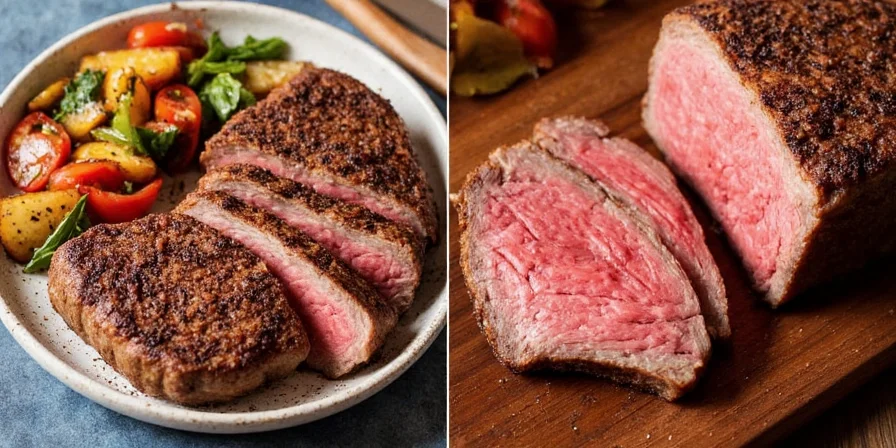
Conclusion: Taste the Meaty Difference
Now that you've unlocked the science-backed steak seasoning techniques, it's time to put theory into practice. Whether you're firing up the smoker or slapping a T-bone on the cast iron skillet, remember: the right seasoning isn't about masking the meat—it's about revealing its full potential through precise timing, measurements, and technique.
So next time someone compliments your steak, you can smirk knowingly and say, "Oh, just a little something I whipped up." Because now you know what really makes the difference.
Frequently Asked Questions
When should I salt my steak before cooking?
For best results, salt standard cuts (1-1.5 inches) at least 40 minutes before cooking. Thin steaks need 15 minutes, while thick cuts (1.5+ inches) benefit from overnight dry brining. The 40-minute rule allows time for salt to dissolve, penetrate, and be reabsorbed without excessive moisture loss.
Can I use table salt instead of kosher salt for steak?
Yes, but adjust quantity. Table salt is denser—use half the amount of kosher salt. For 1 teaspoon kosher salt, use 1/2 teaspoon table salt. Diamond Crystal kosher salt (5g per tsp) is preferred over Morton's (7g per tsp) for better control.
Why does my seasoning burn on the grill?
Spices like paprika burn at high heat (above 350°F). Prevent this by applying them after initial searing or mixing with oil to form a heat-resistant paste. Pepper burns at 400°F, so add it after the crust has formed.
Is oiling the steak necessary before seasoning?
Oiling helps spices adhere evenly and prevents sticking. Use a light brush of neutral oil (avocado or grapeseed) before dry rubs for optimal crust formation. Oil creates a barrier that prevents spices from burning while promoting even heat distribution.

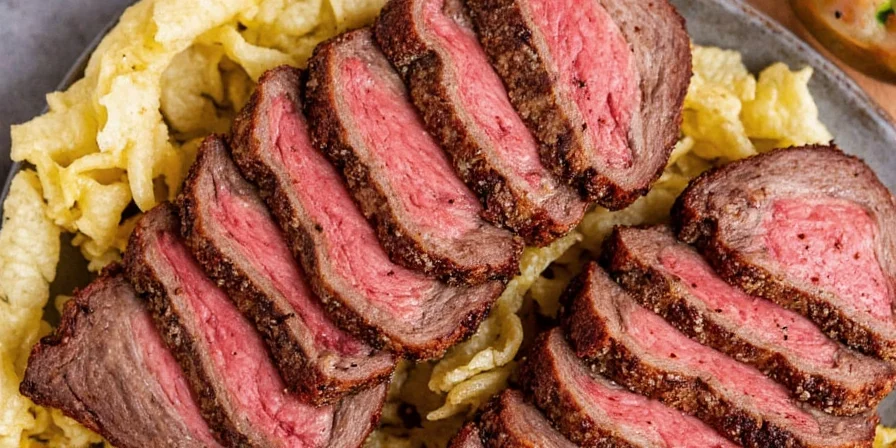









 浙公网安备
33010002000092号
浙公网安备
33010002000092号 浙B2-20120091-4
浙B2-20120091-4